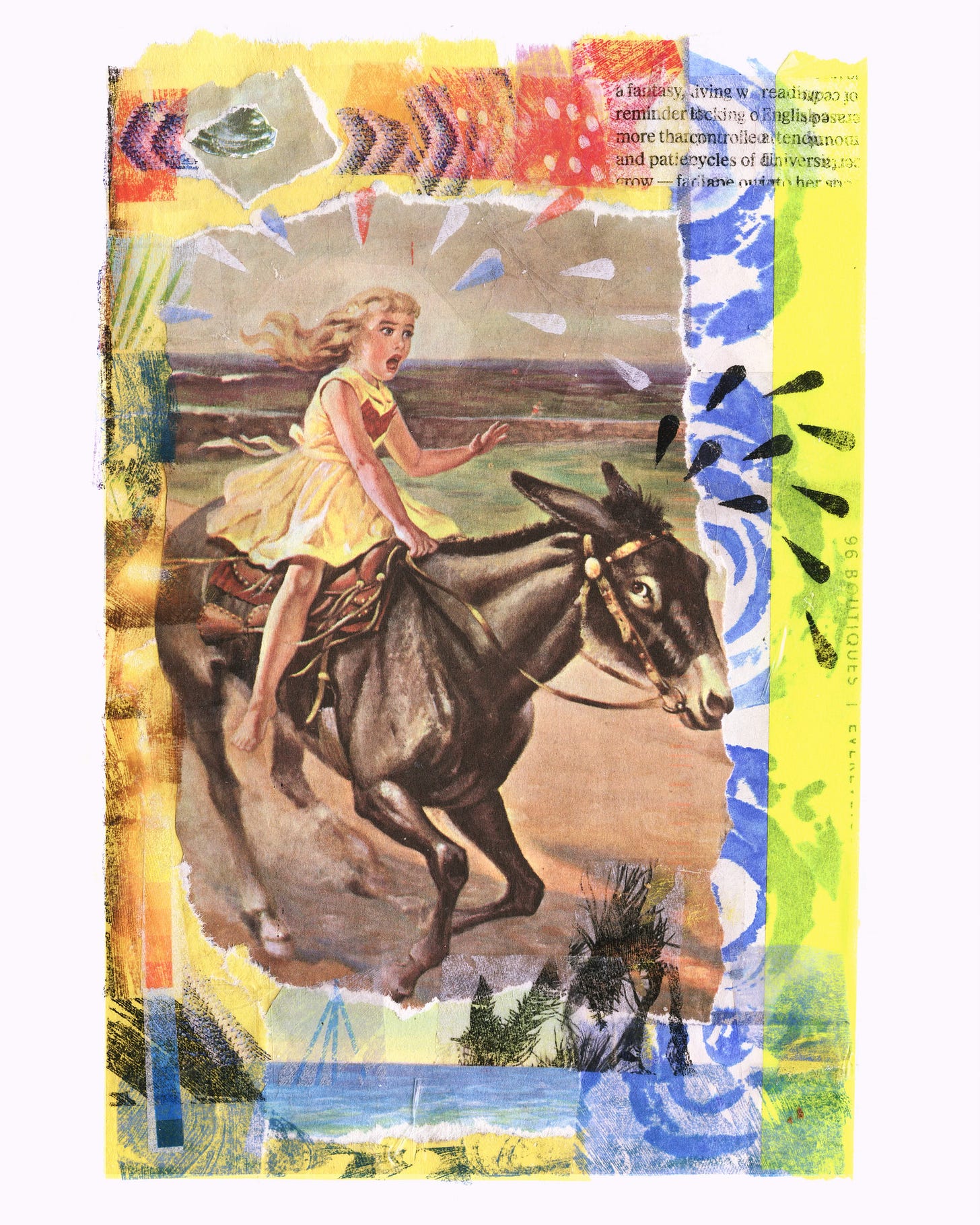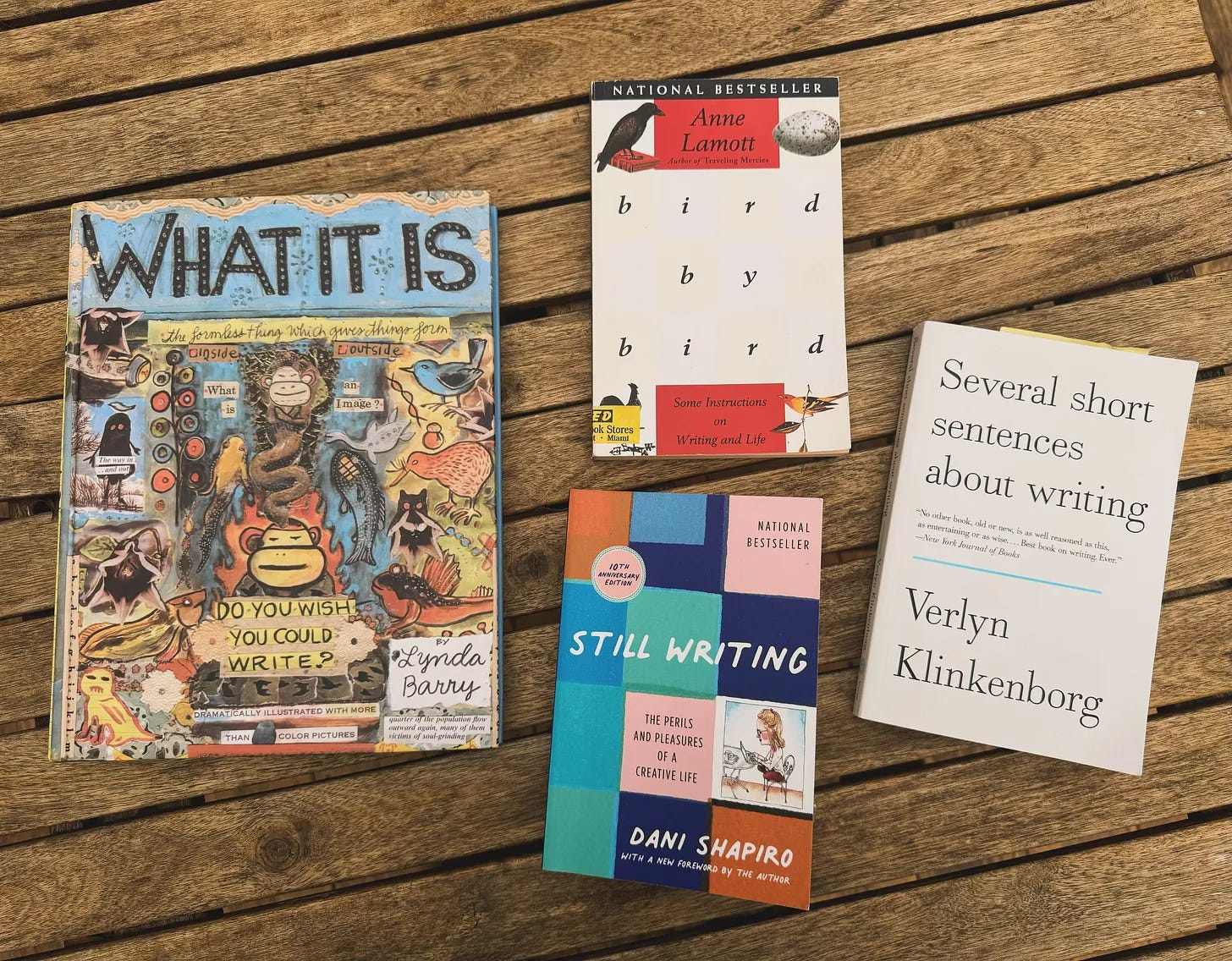Donkey work
10 things (about writing) worth sharing this week
Here are 10 things (about writing) I thought were worth sharing this week:
“Writing is essentially donkey work, manual labor of the mind. What makes it bearable are those moments (which sometimes can last for weeks, months) when the book takes over, takes on a life of its own, goes off in unexpected directions.” That’s John Gregory Dunne, in his introduction to The Studio. (Shared by my pal Alan Jacobs, who texted me, “I spend so much time trying to make my writing NOT donkey work...”)
“I don’t like to write, but I take great pleasure in having written—in having finally made an arrangement that has a certain inevitability, like the solution to a mathematical problem. Perhaps in no other line of work is delayed gratification so delayed.” So wrote William Zinsser in Writing To Learn.
I am currently in a beautiful place for a writer to be: I am in between drafts, that beautiful spot where, as my editor (Meg) says, “Somebody else is looking after the baby,” and I can putter and fritter my days until the baby is returned to me, free any of the existential “What next?” angst of being in “The Abyss” or “The Gulp” or that place in between projects when you worry you might never write again.
Does “the comfort zone” get a bad wrap? “Having lived most of my life firmly within the confines of a very specific set of interests and abilities, I can tell you that the comfort zone has many upsides. It may be associated with sloth and cowardice and any number of paralyzing, irrational phobias. It may be a dark abyss where misunderstood people lie around in fading recliners listening to outdated music. But I’m convinced that, when handled responsibly, the comfort zone can be as useful and productive as a well-oiled industrial zone. I am convinced that excellence comes not from overcoming limitations but from embracing them.“ That’s Meghan Daum in her essay, “I Am Not A Foodie,” collected in The Unspeakable. (Personally, I’m a huge fan of what I call “Comfort Work.”)
To become a writer, you must become a reader first, so here are the 100 greatest READ posters of celebrities urging you to read. (You can buy a bunch of these in the American Library Association’s store.)
”I’m just not that good of a writer – so I have to write about interesting things…. because I have never considered myself to be that good, I have to write about the most profound and confounding things out there.” Benjamín Labatut being extremely modest about his awesome book, The MANIAC. (I also loved his previous book, When We Cease to Understand the World.)
A trio of UK-based writers I admire have new books coming out. Tom Hodgkinson has a new one, Idle Thoughts, which was collected from his excellent Letters from the Editor for The Idler. (His The Idle Parent was an influence on my next book.) I got Oliver Burkeman to send me a galley of his next one, Meditations for Mortals, which contains some greatest hits from his excellent newsletter, The Imperfectionist. (Watch our interview about his last book, the much-lauded Four Thousand Weeks.) John Higgs has two books being re-released with great covers: his biography of Timothy Leary, I Have America Surrounded and The KLF: Chaos, Magic, and the Band Who Burned a Million Pounds. (I love Higgs’ advice to “never waste a midlife crisis.”)
”In my experience, here’s how essays form: You get all these bits of data that stick in your head… file drawers in your head. At a certain point you realize one of the drawers is now full, and you might have an essay.” Tim Kreider on the artist at midlife.
Great writers are sensitive to their environment — they are an “indicator species.”
Let’s give the last word to Georg Christoph Lichtenberg, because I finally finished The Waste Books and I love him: “A principal rule for writers, and especially those who want to describe their own sensations, is not to believe that their doing so indicates they possess a special disposition of nature in this respect. Others can perhaps do it just as well as you can. Only they do not make a business of it, because it seems to them silly to publicize such things.”
Thank you for reading. This is a hand-rolled, ad-free, anti-algorithm, completely reader-supported publication. You can help keep it going by becoming a paid subscriber:
xoxo,
Austin
PS. Remember: Every writing book is good. (If it gets you to write!)




I’m absolutely excited to read your posts, as your speak to my heart. Your recommendation and musings have taken me personally on a lot of adventures paths . Not sure if ti means anything to you but I only subscribed to your and Maria Popova writing. Keep up the excellent work that you do as it is important to a lot of us out in this cold cruel world.
I really loved Four Thousand Weeks—he basically confirmed my own philosophy of how I live my life. ❤️